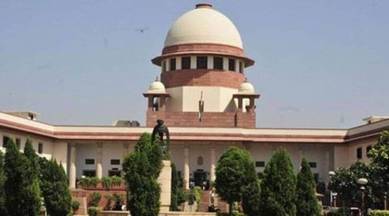Stay updated with the latest - Click here to follow us on Instagram
SC asks Maharashtra poll panel to notify elections for local bodies in 2 weeks
The bench said that since the five-year term of around 2,486 local bodies in the state had expired and elections were required to be conducted under provisions of the Constitution as well as the Maharashtra Municipal Corporation Act, the exercise “cannot brook any delay”.

In a setback to the Uddhav Thackeray government in Maharashtra, the Supreme Court on Wednesday asked the State Election Commission to notify election schedule for local bodies within two weeks on the basis of the previous delimitation exercise, rejecting the stand that it can be done only after fresh delimitation is done by the state government.
A bench presided by Justice A M Khanwilkar said, “The process of delimitation being a continuous exercise may be continued by the State of Maharashtra, subject to the outcome of these petitions, but that would be relevant only for future elections after such exercise is completed.”
“Accordingly, the election programme of such local bodies must proceed and the State Election Commission is obliged to notify the election programme within two weeks from today in respect of such local bodies… on the basis of the delimitation done prior to coming into force of the Amendment Act(s) with effect from 11.03.2022,” said the bench, also comprising Justices Abhay S Oka and C T Ravikumar.
The court was hearing petitions challenging the constitutional validity of certain provisions in the Mumbai Municipal Corporation Act; Maharashtra Municipal Corporation Act; Maharashtra Municipal Councils, Nagar Panchayats, Industrial Townships Act (Amendment) Act, 2022; Maharashtra Village Panchayat and Maharashtra Zilla Parishad and Panchayat Samiti (Amendment Act), 2022; and the Mumbai Municipal Corporation (Amendment) Act, 2022.
The petitions contended that while under the constitutional scheme, the authority regarding delimitation ought to be with the State Election Commission, this has been taken away owing to the coming into force of the Amendment Acts with effect from March 11, 2022.
Hearing the pleas on Wednesday, the court said the question may require deeper examination and posted them for further hearing. It then asked the State Election Commission why the elections “though overdue, and in some cases even overdue for two years, have not been taken forward”.
The Commission said it had taken steps in right earnest until the Amendment Acts came into force. It said until the delimitation is done by the state government under the stated amendments, it is not possible for it to proceed in the matter.
Rejecting this, the court said, “The delimitation as it existed prior to 11.03.2022 in respect of concerned local bodies be taken as notional delimitation for the conduct of overdue elections and to conduct the same on that basis in respect of each of such local bodies.”
It clarified that until the delimitation is done by the state government in terms of Amendment Acts of 2022, “the State Election Commission shall give effect to this order also in respect of upcoming elections in respect of local bodies which would become due by efflux of time”.
The bench also directed that “in so far as providing reservation for Scheduled Castes and Scheduled Tribes, the mandate of the Constitution and statutory provision must be followed; and in so far as Other Backward Classes, compliance of triple test as predicated by this court… must be adhered to”.
The triple test requirement is a three-pronged criteria set up by the top court in previous judgments to mandate OBC reservation. It requires the state (1) to set up a commission to conduct rigorous empirical inquiry into the nature and implications of the backwardness qua local bodies, within the state; (2) to specify the proportion of reservation required to be provisioned local body wise in light of recommendations of the commission, so as not to fall foul of overbreadth; and (3) in any case such reservation shall not exceed aggregate of 50 per cent of the total seats reserved in favour of SCs/STs/OBCs taken together.
The court also asked the State Election Commission to file a compliance report.